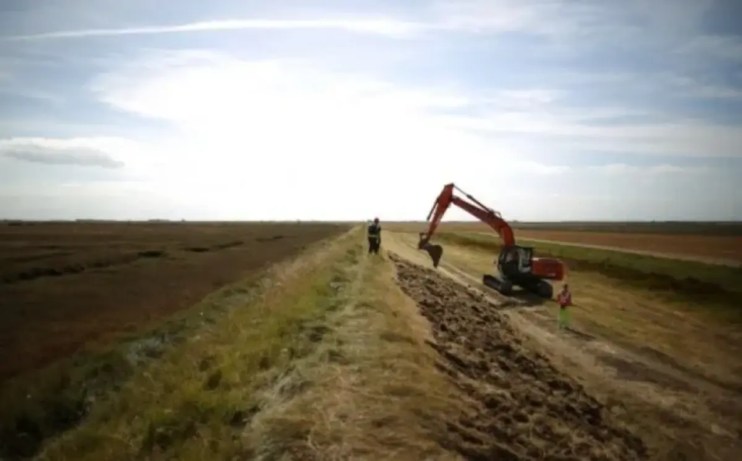Building on the green belt won’t fix the housing crisis

Labour’s plans to relax protection for the green belt will incentivise developers to build expensive houses for commuters while leaving city centre brownfield sites to rot, says Sam Fowles
Labour has put solving the housing crisis front and centre, promising to build 1.5 million new homes by the end of the parliament. But its key policy, compelling local planning authorities to grant permission for new homes in the green belt, is a solution to a problem that doesn’t exist. In reality, it will make things worse.
Local planning authorities are already granting more than enough permissions. Housebuilders simply aren’t building them out. Since 2017, quarterly permissions have averaged more than 300 000, well above the rate needed to meet Labour’s target. In the same period, completions (i.e. houses actually being built) ranged around 50 000 per quarter.
The problem lies with the market, not the regulator. In 2018, the Letwin Report concluded the primary cause of unaffordable house prices was “the rate at which the market will absorb the homogenous product of the housebuilders”. In other words, housebuilders were pricing their product too high. The housebuilding market is dominated by a small number of firms. These stand to gain more by keeping prices high. After a certain point the cost per build stays roughly the same however many houses are built (economies of scale only take you so far) so the housebuilders profit more from building a smaller number of houses and selling them at high prices. In other words, the market incentivises the problem that Labour is trying to solve.
Opening up the green belt will only exacerbate this structural problem. With proximity to both the city and open space, green belt land is a golden egg for developers seeking to build high cost/low volume housing. Labour’s policy doesn’t include worked out plans to ensure that schools, healthcare, shops, public transport, and jobs follow the new green-belt housing, so new residents will need to travel substantial distances to do pretty much anything.
The new green belt housing will thus be ideal for high-income families with sufficient capital to pay the high prices and sufficient income to afford the eye-watering cost of commuting. But the market is already well provisioned with this sort of housing. The people who really need housing, young people and those on low incomes, don’t have the capital and won’t be able to afford the commute. National planning policy requires developers to provide a certain amount of “affordable housing”. This, however, is primarily defined as housing for rent at 80 per cent of the market value. With the average rent approaching £1000 per month, “affordable” in policy terms is rarely “affordable” in real life.
Green belts incentivise developers to rejuvenate brownfield land in cities (more likely to be suitable for those most in need of housing but more expensive to redevelop). Labour’s proposal rewards developers who leave much needed redevelopment to rot while concreting over virgin green belt sites. It’s exactly the opposite incentive to what’s needed.
A blow for local democracy
Labour’s plan will thus bestow a windfall on oligopolistic housebuilders. Simultaneously, it will be a body blow for local democracy. The planning system is one of the few parts of our government which incentivises genuine scrutiny of policy decisions and involves those most impacted (local people). Councils currently take great care to identify appropriate sites and ensure new development reflects the character of the locality. Locals, developers and anyone else with sufficient interest can test the evidence base for local plans and decisions, question the Council’s analysis, and even challenge the conclusion. Labour’s policy takes much of this decision-making away from local government and local people and drops it squarely in Whitehall.
It’s good to see Labour grappling with thorny problems like the housing crisis. But unless it tackles the real issues, it may as well just hand out cash to housebuilders.
Sam Fowles is a barrister